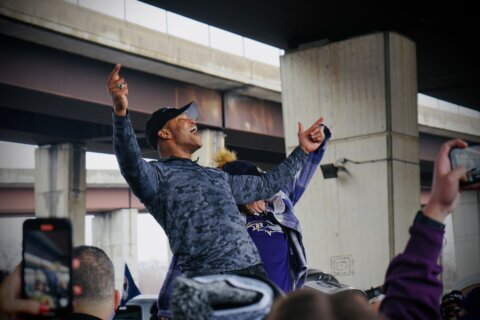WASHINGTON — A team’s inaugural season is usually marked by celebration and fanfare, as new fans are minted and introduced to a sport and a local rooting interest for the first time. The 2017 Washington Valor will be entering a strange new Arena Football League, though — one that appeared to be growing to nine teams, only to find themselves staring at the prospect of being just one of four clubs remaining come opening day.
News broke over the past week that the Jacksonville Sharks and Arizona Predators had jumped ship for the competing Indoor Football League, while the Orlando Predators, Portland Steel and LA KISS have all folded, ceasing operations. Yes, the same LA KISS owned by Gene Simmons, whose profane, rollicking endorsement of the sport highlighted the Valor’s own unveiling in D.C. back in March of this year.
Monumental Sports and Entertainment did not offer any comment on the league developments, but the team did partake in last Friday’s Dispersal Draft, where players from the disbanded teams were spread around the remaining four clubs. As the expansion club, the Valor got the first three overall picks, as well as the first pick in each round, and took a trio of quarterbacks including Tommy Grady — former University of Utah and Sharks signal caller — first overall.
Of course, the Valor just held open tryouts a couple weeks ago. Some of the once available roster spots have no doubt since been filled.
The league offered a statement regarding its situation the same day as the Dispersal Draft, in which it specifically leaned on the Washington expansion as a sign of hope.
“The Arena Football League is focused on solidifying its foundation for the long term and is in active conversations with strong, experienced ownership groups in markets where there is already a pro sports signature in place,” it read. “The addition of the Washington Valor this coming season provides a solid example of where we are headed. Ultimately, we continue to be focused on positioning and growing the league over the long term to deliver the great game, compelling broadcasts and arena experience our fans have come to expect.”
The advantage three of the four remaining teams — who are reportedly set to play a 12-game schedule next spring — enjoy is that they are owned by multi-team companies and do not have individual rent responsibilities in their respective arenas. That seems to be the direction the league wants to go moving forward. For now, it will do so with just four clubs in tow.







